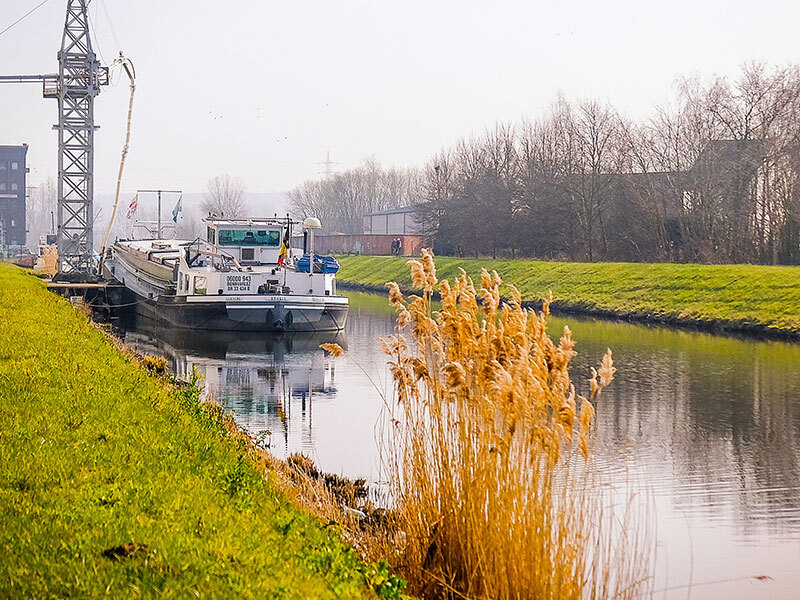Research on unmanned shipping and transshipment
21053
From 2021 to 2022
Scaling up in inland navigation is necessary to remain competitive, but this threatens smaller vessels and waterways in Kempen and Limburg. This study investigated ways to save costs through automation of sailing and loading and unloading, as well as the potential of alternative forms of propulsion. TML contributed to the development of business cases and operational parameters in cooperation with local actors and experts.
In the inland shipping sector, economies of scale are needed to be competitive. However, this is at the expense of the small vessels and waterways that are so typical of Kempen and Limburg. In addition, personnel and transhipment costs are an important part of the total cost of small inland navigation. In this study, we investigated ways to save on this, for instance by focusing on automation of both the sailing itself and the loading and unloading. We also investigated the potential of alternative forms of propulsion for these vessels.
For small waterways, innovation and automation appear to be a must. Especially on these waterways, traditional inland navigation is getting increasingly difficult, and this mode of transport is even in danger of disappearing. Our analysis showed that technologically a lot is already possible, both in terms of sailing and transhipment. Furthermore, the calculations of the total social costs indicated that innovative inland navigation on small waterways does have opportunities if a number of conditions are met, such as availability of sufficient volumes and the willingness of the parties involved. The study of alternative power sources further showed that an electric propulsion system is probably the most suitable for inland navigation on small waterways, with energy supplied from batteries or via a dual fuel generator running on renewable fuel.
Through interviews with local experts, we mapped the market potential (with boundary conditions). Technical experts from KU Leuven drew up an overview of the technological possibilities (already existing or to be developed in the relatively short term), both in terms of autonomous sailing and propulsion. Then, in consultation with the client and local companies, we worked out a number of business cases, taking particular account of savings in personnel and handling costs in the scenarios.
In this study, TML helped develop the business case and translate the technical aspects into the economic context. We helped conduct discussions with local actors and worked out the operational and economic parameters.
Based on this report, the Limburg Provincial Development Company can take concrete steps with the companies involved to set up pilot projects, possibly in cooperation with De Vlaamse Waterweg, which itself already has such projects running in other Flemish regions.


